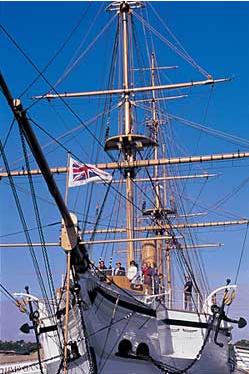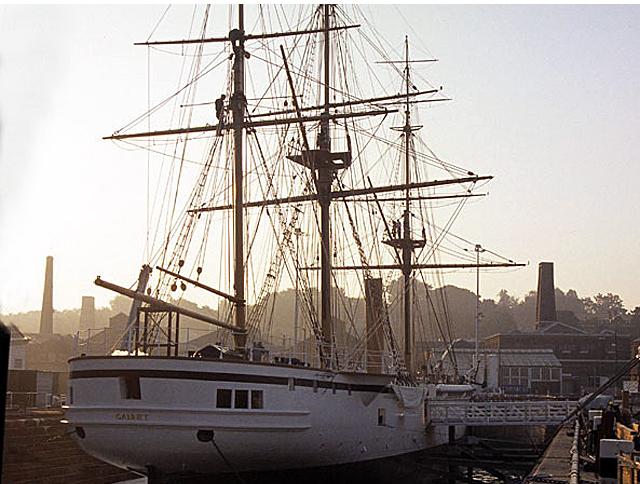
Please, my fine, wise, and loyal readers from the Left - don't leave me this FbF - stick with me.
Ya'll remember the gift exchange train wreck, right? Well, regardless of your political persuasion, let this put a smile on your face. Via Ted Bromund,
The ironies here are wonderful, though Obama doesn't seem likely to appreciate them. Of course, the reference to the anti-slavery mission is a nod to Obama's fascination, fervent but not deep, with Abraham Lincoln.Then we get to the FbF part - seriously, imagine being on the deck during this action - a little before her time, but what set the purpose for HMS Gannet when she came along.
But HMS Gannet was not, as a casual reader might guess, employed against the trade of slaves from Africa to the New World, and since it was built in 1878, it has nothing to do with Lincoln or slavery in the United States. It sailed the Mediterranean and the Red Sea, patrolling against Islamist slavers. In the Red Sea, the Africans it saved would have come, among other places, from Kenya. Obama has made mention of his grandfather's antipathy to Britain, stemming from his experiences in colonial Kenya. It is quite possible that grandfather's ancestors would, had it not been for the Royal Navy, have been carried away to slavery in Arabia.
The British campaign against the slave trade is instructive for another, more important, reason. By volume of business, it was the Foreign Office's most important concern for much of the 19th century. In the courts of Europe and the New World, Britain sought to negotiate effective treaties against the trade. But Britain did not restrict itself to diplomacy. Far too often, treaties were negotiated and then not enforced. Britain's first response to this was usually to negotiate again, but its patience was not infinite,
[In June 1850], British warships entered Brazilian ports to flush out vessels being fitted for the slave trade. The subsequent burning and scuttling of suspected slave ships, and exchanges with coastal batteries, resulted in a predictable outcry in Brazil, including a call for the government to consider war with Britain. Wiser counsels prevailed, and in the summer of 1850 new legislation placed a comprehensive ban on the importation of slaves and measures for the seizure of vessels fitted for the trade. Unlike previous acts, these provisions were rigorously enforced and within twelve months the Brazilian slave trade was effectively extinct.Zen. I love history and fact - it clears the mind and brightens the soul. Regardless of today's politics. what a Fullbore action by a Fullbore nation.
...
In short, Britain's campaign against the slave trade combined diplomacy and unilateral force in a highly effective and sustained way. Diplomacy provided legitimacy, but the British were not willing to be bound by treaties that did not bind the other side: if they felt they were being made fools of, they acted. Negotiations were meant to achieve a distinct aim: they were a means of policy, not an end in itself.
How unlike the current administration, which congratulates Hugo Chávez on winning his "dictator for life" referendum, has responded with "utter passivity" to a series of Russian, Pakistani, and Iranian provocations, and which cannot wait to stab Eastern Europe in the back by selling them out on missile defense. Maybe that pen holder is Brown's way of encouraging Obama to show a little of the old-fashioned British spirit, and to recognize that endless negotiations not backed by steel are a mistake if they come at the cost of the nation's values and honor.
As a side-bar, the HMS Gannet is still around - that is her modern day picture on the right and below - and a link to her here.

Hat tip Scott.









No comments:
Post a Comment